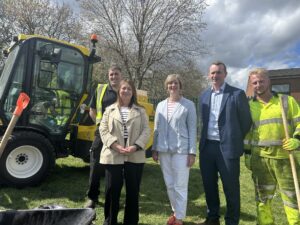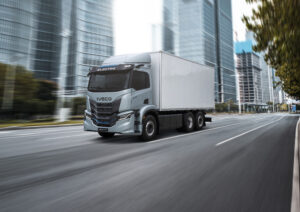Imagine driving at 70 mph on a busy motorway and taking your hands off the wheel to send a text or watch a movie. This wild possibility could be a reality as soon as next year, as government considers proposals to use automated technology.
Manufacturers are expected to roll out the next generation of collision-avoidance and lane-keeping technology for new car models in 2021. Cars will take control, and potentially responsibility, of speed and steering.
Government is considering legalising Automated Lane Keeping System (ALKS) technology for use at speeds of up to 70 mph in the slow lanes of motorways, with the cars automatically staying in law and slowing down for vehicles in front. The system uses camera and laser and radar sensors to prevent drifting and crashes.
The government consultation, which launched on Tuesday, is expected to raise the crucial question of whether the driver will hold legal responsibility for the car, or whether the car should be defined as an automated vehicle.
The ALKS system is classified by the UN’s Economic Commission for Europe as Level 3 automation. This means that while drivers do not have to be in charge of the vehicle, they must remain prepared to take over when prompted by the vehicle. It could be ruled that the technology provider will be legally responsible when the ALKS is engaged.
This means that drivers could be allowed to undertake otherwise illegal tasks, such as sending a text message, or watching a film, so long as they are prepared to regain control of the vehicle again.
Currently, UK laws permit drivers to use lane assist systems in line with Level 2 automation. This means that drivers must remain engaged in the task of driving and awareness of their environment.
‘Automated technology could make driving safer, smoother and easier for motorists, and the UK should be the first country to see these benefits, attracting manufacturers to develop and test new technologies,’ commented the transport minister, Rachael Maclean. She emphasised that the outcome could be a significant move in changing the way cars are driven.
Tesla are one of the companies leading the way in driver-less technology, and already uses Autopilot systems on the Model 3, Model S and Model X. However, current UK laws have limited the highest level of automation to Level 2, at which drivers must be paying attention at all times.
Some remain sceptical over the idea of legally automated cars. Jim Holder, editorial director of What Car?, highlighted that the trials of automated lane keeping technology were not reassuring: ‘They’re not necessarily at the point where you’d trust them enough. They work 90% of the time, but that’s not enough’.




